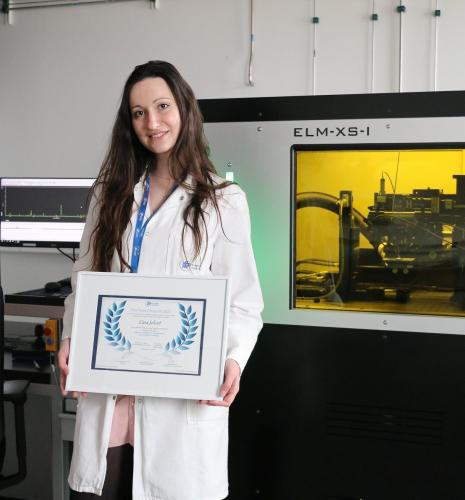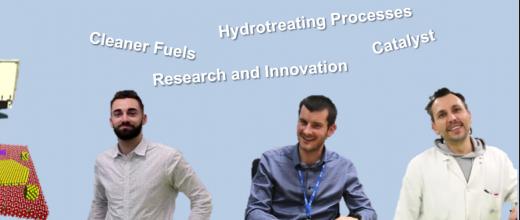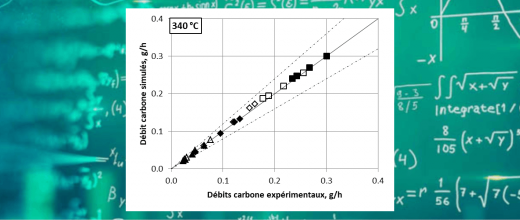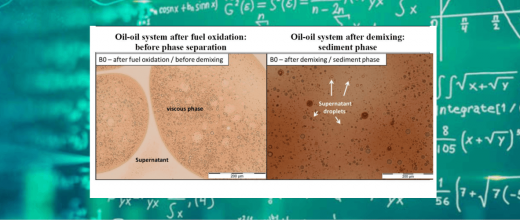
News in brief
Towards better control of thiophosphate electrolytes for solid-state batteries
Solid-state lithium (Li) batteries offer the promise of surpassing the energy density limits of current generations of Li-ion batteries, while being safer. The key to these performances lies in the choice of the solid electrolyte (SE) and its integration into the electrochemical cell. Among the various SEs studied, inorganic thiophosphate phases (Li₃PS₄ and Li₆PS₅X with X = Cl, Br, I) are notable for their high ionic conductivity at room temperature (> 10⁻⁴ S.cm⁻¹), which makes them suitable for use as solid electrolytes.

Individual page
Elodie DEVERS
Research Engineer in Heterogeneous Catalysis, Project Manager in Metals Recycling
Engineer from CPE Lyon (2000), PhD from Université Lyon 1 (2003) and holder of the Accreditation to supervise research (Université Lyon 1) since February 2023 on “The life cycle of hydrotreating
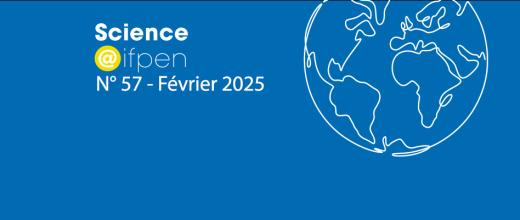
News in brief
Catalysts and the circular economy
The life cycle of hydrotreatment catalysts: from active phase genesis to catalyst recycling Catalysts are essential products for numerous industrial processes, including the hydrotreatment of oil feeds or bio-based feeds. Their properties stem from the active metal materials they contain, the value and criticality of which justify efforts to recover them from waste products. Accordingly, as a major producer of catalysts, one of IFPEN group’s key priorities is to apply the principles of the circular economy to them.

News in brief
Organic matter characterization
Analytical methodologies for the characterization of organic matter : Application to the characterization of complex reservoir source rocks, oils, lubricants, polymers, microplastics, corrosion inhibitors and solid deposits present in geothermal energy facilities
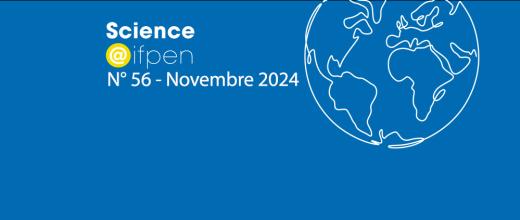
News in brief
Elucidation by operando infrared spectroscopy of CO2 photoreduction mechanisms on Pt/TiO2 catalysts
The photocatalytic reduction of CO2 to “C1/C2 solar fuels” is an attractive conversion reaction since it has the advantage of eliminating this greenhouse gas while providing a usable product. However, despite extensive research efforts, the level of CO2 conversion remains very low, even for the most active catalysts on the market, and the reaction mechanisms involved is still poorly understood. In order to remedy this, this PhD research focused on the study of a model Pt/TiO2-type photocatalytic system. For the purpose of the study, an operando methodology was deployed combining several techniques...

News in brief
SC1 - “Live” heterogeneous catalysts
Heterogeneous catalysts are materials that make chemically possible and economically viable countless industrial processes in the service of energy-related and environmental problems, such as fuel production and air quality (vehicle emissions, building interiors). Their implementation involves two major scientific challenges: (1) the identification of the chemical, structural and morphological properties of an optimal catalyst , (2) the evolution of these properties over the catalyst’s life-cycle (synthesis, preparation, use, recycling)...

Individual page
Ana Teresa FIALHO BATISTA
Research Engineer in heterogeneous catalysis | PhD in Chemistry
After a Master’s Degree in Chemical Engineering (Instituto Superior Técnico, Lisbon) I pursued a PhD in heterogenous catalysis developing a multi-technique approach to the characterization and

Individual page
Malika BOUALLEG
Project manager, Research Engineer in Heterogeneous Catalysis
Malika Boualleg joined IFP New Energy after a thesis in synthesis of materials and heterogeneous catalysis (CP2M, ex-LCOMS 2006-2009), during which she developed new syntheses of mesostructured

News in brief
The premature ageing of oxygen carrier materials: a challenge for CLC
The increase in the level of atmoshpheric CO2 and the resulting climate change are a global concern. Despite this, the use of fossil fuels continues to grow, in response to high energy demand. Combined with storage and CO2 conversion solutions, Chemical Looping Combustion processes (CLC) offer a medium-term solution to reducing the impact of energy production from fossil fuels, or even biomass...

News in brief
Loss of selectivity in Fischer-Tropsch synthesis: a high-throughput study
Faced with the current climate challenges, alternative fuels are attracting a growing interest for the mobility of the future. Of the various possible alternatives, hydrocarbons could be synthesised via a well-known process: the Fischer-Tropsch (FT) process, based on Syngas (CO and H2) produced, in particular, by biomass gasification. (...) However, the deactivation of FT catalysts is a major issue that directly impacts the costs of the process. (...) To identify these mechanisms, a multiple-stage methodology was implemented as part of a doctoral thesis...





